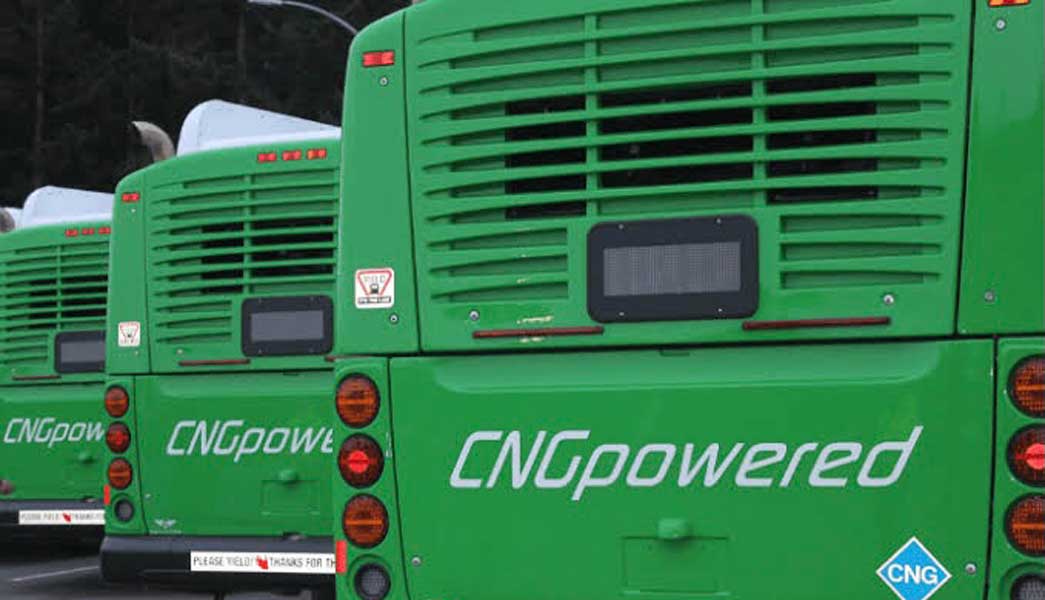Why CNG engines are suitable to save cost
Take it or leave it, the country’s current economic situation is harsh for both the rich and the poor, and many are thinking of ways to cut costs and save more. In this piece, ANOZIE EGOLE looks at the benefits of Compressed Natural Gas engines to Nigerians, especially low-income earners.
As the cost of Premium Motor Spirit, popularly known as fuel, is getting out of the reach of some vehicle owners globally, nations are turning to vehicles powered by Compressed Natural Gas.
In Nigeria particularly, since the escalation of fuel prices in June 2023, a lot is being talked about CNG vehicles. Governments have begun to procure buses powered by CNG for public transport, while private car owners are gradually converting their patrol-powered engines to CNG-powered engines.
In November 2023, The PUNCH reported that the Federal Government revealed plans to introduce one million Compressed Natural Gas powered vehicles by 2027.
The announcement was made by the Special Assistant to the President on Special Duties and Domestic Affairs, Toyin Subaru, during a stakeholders’ meeting held at the Bank of Industry headquarters in Abuja.
As part of this initiative, Subaru disclosed that 11,500 CNG-powered buses are expected to be deployed this week.
This move aims to address transportation challenges exacerbated by recent subsidy removal, providing a viable solution to the public.
The Federal Government assured that the introduction of CNG buses will significantly lower the price of CNG to N230 per kg, making it an affordable and eco-friendly option for the citizens.
Subaru emphasised that the integration of CNG-powered mass transit buses will enable Nigerians to save up to two-thirds of their transportation costs.
Ever since then, the government has continued to make efforts towards ensuring the availability of CNG stations in the country to service the over 200 million Nigerians.
In July, the Nigerian National Petroleum Company Limited said the drive to bring CNG closer to Nigerians has commenced and is irreversible.
The Group Chief Executive Officer of NNPC Ltd, Mele Kyari, said in addition to the massive deployment of CNG stations nationwide, the company and its partners would also build three Liquefied Natural Gas stations in Ajaokuta.
Kyari said this during the simultaneous commissioning of 12 CNG stations in Abuja and Lagos by the Minister of State Petroleum Resources (Gas), Ekperikpe Ekpo.
“There is simply no way to turn back on delivering CNG for all Nigerians. It is the right thing to do. Is it late? Yes, but we will make progress. “We will cover the gap to ensure that the volatility we see with Premium Motor Spirit (petrol) does not apply to gas,” Kyari said.
Meanwhile, as the government is making efforts to see to the full realisation of this initiative and make CNG available to all Nigerians, it is good to know that though the conversion from fossil fuel to CNG is not pocket-friendly in Nigeria, it is still better and more efficient for cars.
When our correspondent inquired from a conversion expert, he said it would cost around N1.8m to convert a 2007 Toyota Corolla to CNG from petrol.
However, Nigerians believe that the conversion prices are still very high because the initiative is new in the system.
They believe that when it is fully adopted into the country, the prices are going to drop more than they are now.
For Ikechukwu Ejiogu, a car dealer, the initiative is the way to go not only because of the high cost of fuel but because of the emission into the atmosphere.
“I seriously buy into the idea, it is the way to go not really because of the cost but considering the level of emission and the climate change. The emission from CNG engines is low when compared to what fossil fuel engines will produce,” he said.
“It may be very expensive now because it has not been integrated into the system, but with time, when it is fully integrated, you will see that the price will crash,” Ejiogu opined.
A motorist, Chike Ignatius, said, “I am scared that after many Nigerians must have spent a fortune converting their cars from fossil fuel to CNG, the prices of gas will now go astronomically higher; it is not going to be funny at all.”
Ignatius opined that in Nigeria, it is difficult to predict and plan ahead of time adding that you may feel that you have planned very well, not knowing that the worst is yet to come.
“I remember my neighbour whose Mercedez Benz came with CNG direct from Europe, he went and converted it to fuel with the hope that it is cheaper, now he is planning to go back to CNG that the car came with, that is the challenge,” he said.
However, though this comes with high prices, CNG is a far cheaper energy and cleaner than fossil fuel, but there are fears about the safety of CNG vehicles.
Here are the top five fears people have about CNG-powered vehicles which may not necessarily be correct:
- CNG cars are unsafe
This is probably among the worst assumptions made about CNG. You should know that CNG has a higher ignition temperature than petrol which makes it less dangerous. CNG can operate at up to 700 degrees Celsius, as compared to petrol’s 455 degrees. So, for instance, if there is an internal temperature rise, it is unlikely that a CNG car will catch fire faster than a petrol car. Also, the cylinders which carry CNG are a lot tougher than the traditional petrol tanks. Before they make their way to cars, they undergo extreme tests to eliminate the risks of leakage.
2 CNG cars are unreliable
If you think CNG-run cars live shorter than traditional petrol cars, then you are mistaken. CNG is lighter than petrol or diesel and is also non-corrosive which helps the engine parts stay intact even after many kilometres. This ensures that the repair cost would be lower over the lifetime of the car. In addition, with a CNG car, you don’t have to change the engine oil frequently, as you would do with a traditional car. If you are a busy person and find it tedious to take your car for frequent service checks, you will be better off with a CNG-run car.
- CNG is expensive
There is no need to hide the fact that the initial cost of CNG cars is higher than their petrol counterparts. However, that is a one-time scenario, since the cost of CNG is nowhere near petrol’s value. The price of CNG has been fluctuating for quite a while, but according to our research, it juggles between N230 and N270 per kg. Compared to the lowest petrol price in the country, CNG is a lot cheaper.
- CNG cars have a smaller boot-carrying capacity
CNG cars do not have ample boot space, and there is no way one can deny the fact. However, with the emerging tech in the auto industry, there could be solutions regarding the reduction of cylinder sizes to accommodate more luggage. In Nigeria, commercial buses that convert to CNG have their energy tanks hidden under the seats. For cars, the gas tank is built in the boot. This may take away space from the boot but the energy cost advantage far outweighs boot space merits.
- CNG is scarce
Initially, the CNG filling pumps were fewer and people had to join massive lines to get their vehicles fueled up. But fast forward to today, and we hardly get to see such scenarios, thanks to over 5,000 CNG pumps across the country. Yes, the number is really low compared to that of petrol pumps, but the number of CNG-equipped cars is lower in number as well. In the future, there will be more numbers of CNG filling stations.






